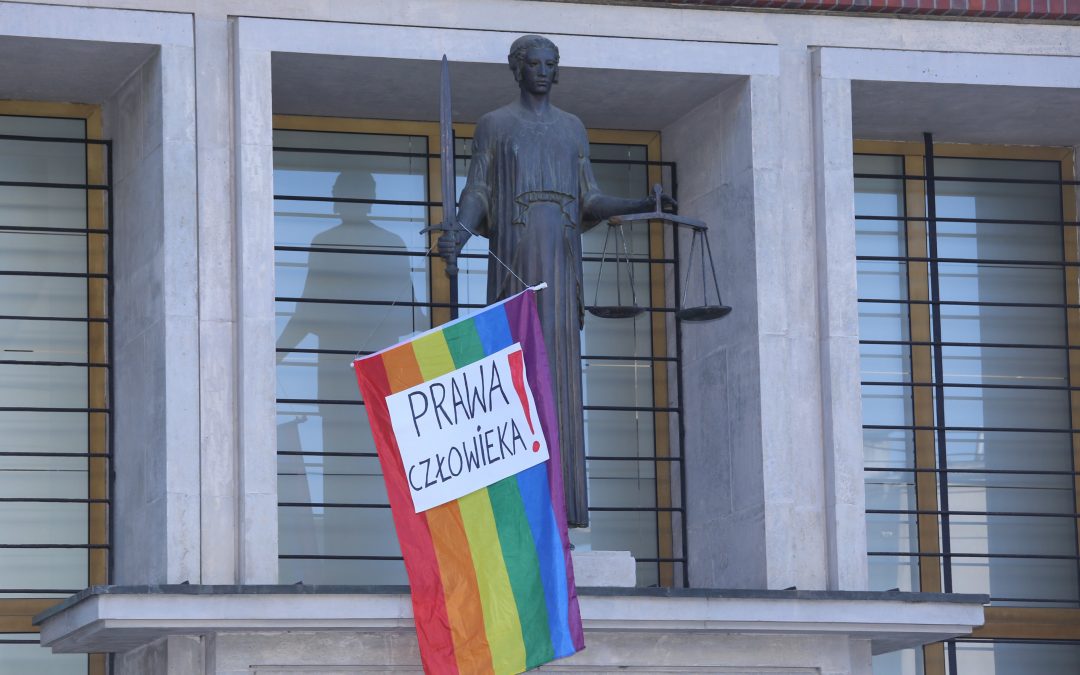Poland’s highest administrative court has ruled that resolutions adopted by local authorities declaring themselves free from “LGBT ideology” were rightly annulled by lower courts. In the first such legally binding rulings, it found that the resolutions “violate the dignity” of LGBT people.
In 2019, nearly 100 local authorities in Poland, most under the control of the ruling Law and Justice (PiS) party, adopted anti-LGBT resolutions or “Family Charters” pledging to protect the traditional family model.
However, Poland’s then human rights commissioner, Adam Bodnar, challenged a number of the resolutions in court, arguing that they violate the rights of LGBT people in a manner contrary to both Polish and European law. A series of lower-court rulings have upheld his arguments and annulled the resolutions.
But those rulings have in turn been challenged, with appeals being submitted to the Supreme Administrative Court (NSA), which is the court of last resort for administrative issues. Yesterday, the NSA rejected four such challenges.
In the first, the authorities in the village of Serniki had appealed against the annulment of their resolution, which declared the area “free from LGBT ideology” and pledged to fight “homopropaganda” and the “sexualisation of children”. Their case was supported by the prosecutor’s office and conservative legal group Ordo Iuris.
But the NSA ruled that the lower court had correctly found that the “resolution violates the dignity, honour and good name, as well as the private life, of a specific group of residents…who identify as LGBT”, said judge Małgorzata Masternak-Kubiak in the justification for the ruling, quoted by the Polish Press Agency (PAP).
Later on the same day, the court issued three similar rulings, dismissing appeals against the annulment of anti-LGBT resolutions in Klwów, Istebna and Osiek. Together, the four cases are the first legally binding final rulings overturning such resolutions.
Pierwsze uchylenie samorządowej uchwały anty-#LGBT jest już prawomocne.NSA oddalił skargę kasacyjną prokuratury, gminy i Ordo Iuris na unieważnienie w 2020 r. przez WSA w Lublinie takiej uchwały Rady Gminy w Sernikach.O utrzymanie tego wyroku wnosił #RPO.https://t.co/gK8IFabI97
— Biuro Rzecznika Praw Obywatelskich (@BiuroRPO) June 28, 2022
In the cases of the five other resolutions challenged by the human rights commissioner, provincial administrative courts initially dismissed the complaints, arguing that the resolutions did not concern matters of public administration and therefore did not fall within the jurisdiction of administrative courts.
But after the commissioner appealed those decisions, the NSA returned all those cases for re-examination by the respective provincial courts, which upon re-examination invalidated the resolutions.
Defenders of the resolutions argue that they do not discriminate against individuals, but simply defend traditional values and express opposition to an “ideology”. However, critics argue that no such ideology exists and say that the resolutions exclude non-heteronormative residents from public life.
Main photo credit: Krzysztof Cwik / Agencja Wyborcza.pl

Alicja Ptak is deputy editor-in-chief of Notes from Poland and a multimedia journalist. She has written for Clean Energy Wire and The Times, and she hosts her own podcast, The Warsaw Wire, on Poland’s economy and energy sector. She previously worked for Reuters.




















